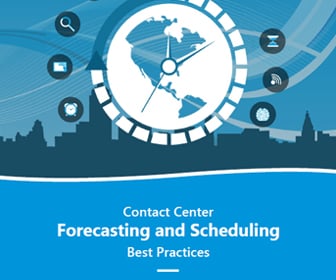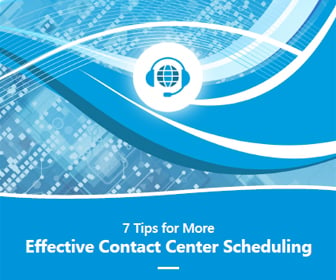Workforce Management Featured Article
Top Acknowledgement Statements for Customer Service Success
Call center agents are a voice on the other end of the phone. Expressing empathy via a telephone is extremely hard, compared to face-to-face interactions. Discovering acknowledgment statements that will make an exchange sound authentic and less robotic enhances customer service, ensuring a more positive outcome.
Statements need to seem natural and will become that over time. One opening line when dealing with an unhappy customer might be: “I realize that this situation is difficult, but let’s try and find a solution.” It acknowledges the problem and the desire to offer options to help. It is also a neutral opening, making the customer’s feelings the focus.
Taking a relatable approach is acceptable as well: “I would feel the same in your situation, but we will sort this out.” This demonstrates empathy and shows the agent jumping into the customer’s shoes. The agent must be aware of his presentation, though, because it could sound patronizing. The customer could be oversensitive, knowing the agent is actually not in the same situation. It is a hit or miss line, but can be a highly an effective one.
An apology goes a long way, especially if it comes directly from the agent. “I’m sorry you are having this problem. Let’s see if there is anything we can do to help the situation.” The first-person singular apology, “I’m sorry,” is key, because a personal relationship can be developed between the agent and caller.
Again, taking personal ownership of an issue with a customer in a call center is vital for a positive interaction. Here is another key example: “Now that I am aware of the situation, I will definitely try my best to fix it for you.” Personalizing the situation with “I am aware” then following up with a positive word like “definitely” gives a further reassuring feel.
FCR is not always easy to come by. There are instances where the agent must follow up and a good response to that is: “We will work to resolve the problem. You just enjoy your weekend (or holiday, birthday, break, vacation, etc.), and I will be in touch shortly.” Offering reassurance and a sense of urgency can relax even the most stressed caller.
It is hard to relax and keep customers feeling positive. But, by using the first-person singular acknowledgement statements over more general and less sensitive “we” gives the agent ownership of the situation. It creates a reassuring and authentic bond, through which the customer and agent become a team with a common goal of turning a bad situation into a positive one.
What acknowledging statements have you trained your agents to use?
Edited by Erik Linask







